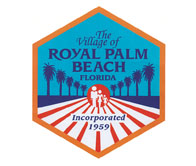At the Royal Palm Beach Village Council meeting on Thursday, Sept. 15, Vice Mayor Jeff Hmara reported on the village’s first Education Advisory Board meeting of the season on Sept. 12.
Hmara, who is liaison to the board, said he and Village Manager Ray Liggins had met with the board prior to the meeting in response to direction from the council to talk about roles and responsibilities and to correct some misunderstandings about the board’s role.
At the Aug. 18 council meeting, Councilman Dave Swift had commented that he thought some members of that board had been disrespectful to the council, and specifically Hmara, who had tried to give direction to the board on the coming year in a planning session held Aug. 8.
“They tried to buck him on that,” Swift said. “They believe that it is their role to determine everything that is going to happen in the next year. That is not what we have directed Jeff to do.”
At the Sept. 15 meeting, Hmara reported that the decorum of the Sept. 12 meeting had improved.
“I can report that the results showed,” he said. “[The] meeting was a definite improvement over the Aug. 8 meeting.”
The board’s work plan approved for the coming year includes a more rigorous review for the scholarships awarded by the village to graduating seniors that gives a more uniform method for evaluating the applicants.
“One of the individuals who is a member of the Education Advisory Board also happens to be the dean of students at Palm Beach Atlantic University, and with that great resource, he was the one who provided us with this new set of guidelines for the scholarship interviews,” Hmara said. “I think that’s a positive step.”
Hmara said the Education Advisory Board highlights one school at each meeting, and this year’s focus will be on STEM academies.
“Oftentimes they do it with students,” he said. “Sometimes they do it strictly with the principal, and the point is it’s an opportunity for the school to showcase itself and also to have the school answer some questions from both the board and the public.”
Hmara said the board adopted a policy two years ago to focus on a particular aspect of education.
“This year’s focus is on science,” he said, explaining that all Royal Palm Beach schools have Science Technology, Engineering and Math (STEM) programs that continue through elementary, middle and high school. “This is an opportunity to pursue some additional details in that regard.”
Swift said he was particularly interested in a presentation planned by School District lobbyist Vern Pickup-Crawford.
“I always found that meeting very interesting,” he said. “I’m just wondering if you might consider a council/education board meeting with that because there are a lot of questions that come out there, and, as usual, we would have our school board representative there, and often we have the assistant superintendent there.”
Mayor Fred Pinto asked about the change in format for interviewing scholarship candidates.
“This just provides a basis for evaluating the presentations by each one of the applicants,” Hmara said, explaining that the format is in four areas — leadership capacity, academic achievement, civic involvement and future goals — with a certain number of points assigned to each category.
“It becomes a quantitative evaluation rather than a highly subjective one, so this is what is being proposed,” he said, adding that the board had come up with the recommendation itself.
Village Attorney Jennifer Ashton said the board and council can use whatever method they choose for the evaluations.
“If they think this is the criteria that they’d like to use, this is similar to what we use in our procurement process,” Ashton said.
“I think this is good,” Swift said. “I think this helps the interviewees more.”
Councilwoman Selena Smith agreed. “It’s kind of like going to a job interview where you don’t know the questions you’re going to be asked ahead of time,” she said. “This is one of the things that’s going to prepare them, especially when they go to college.”
Councilwoman Jan Rodusky also approved of the change in the evaluation method.
“I think a rubric in this regard is terrific,” Rodusky said. “It helps all the panelists to see how they’re evaluating them.”
She suggested a bigger point spread than 1 to 5.
“The more applicants you have, the closer the scores are going to be with a scale of 1 to 5,” Rodusky said.








